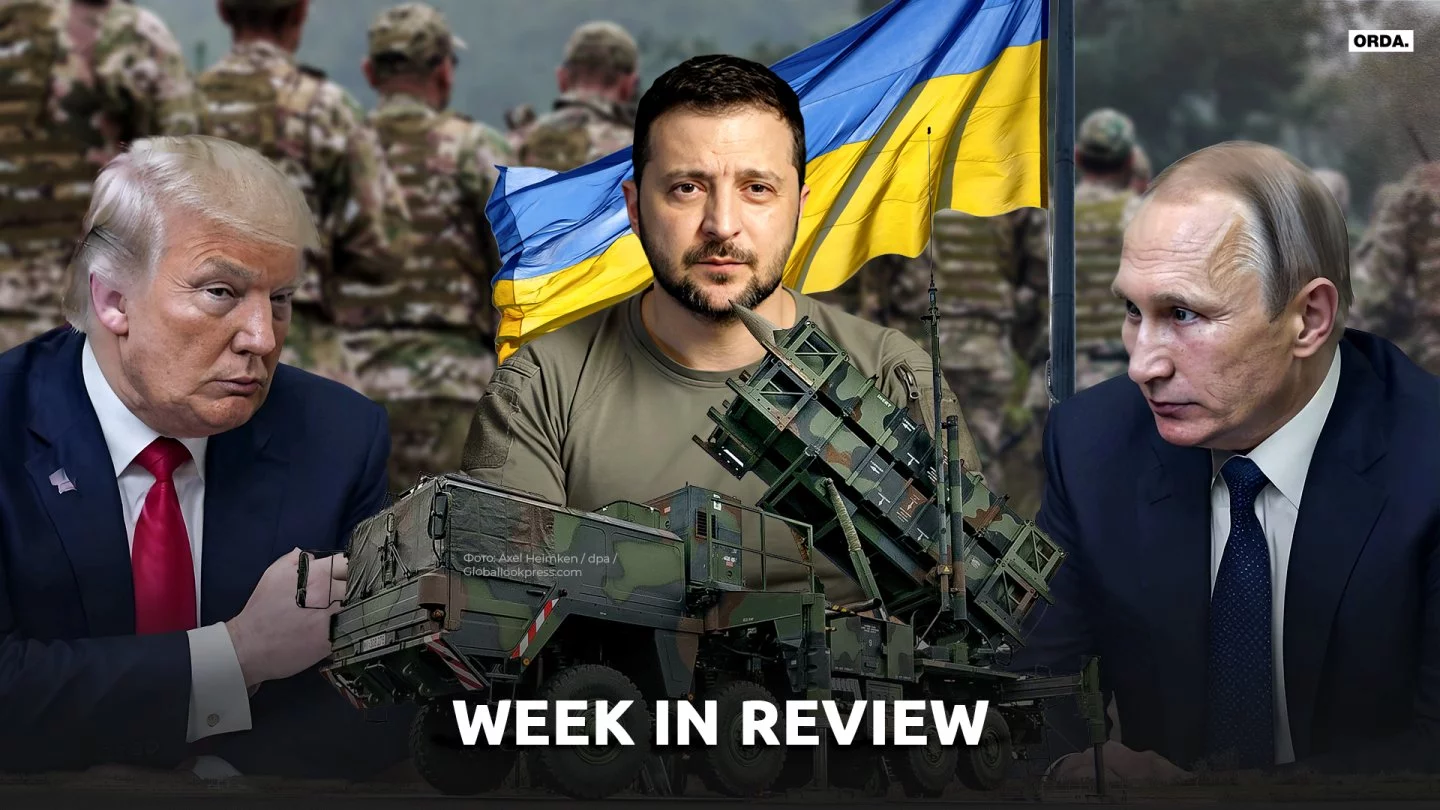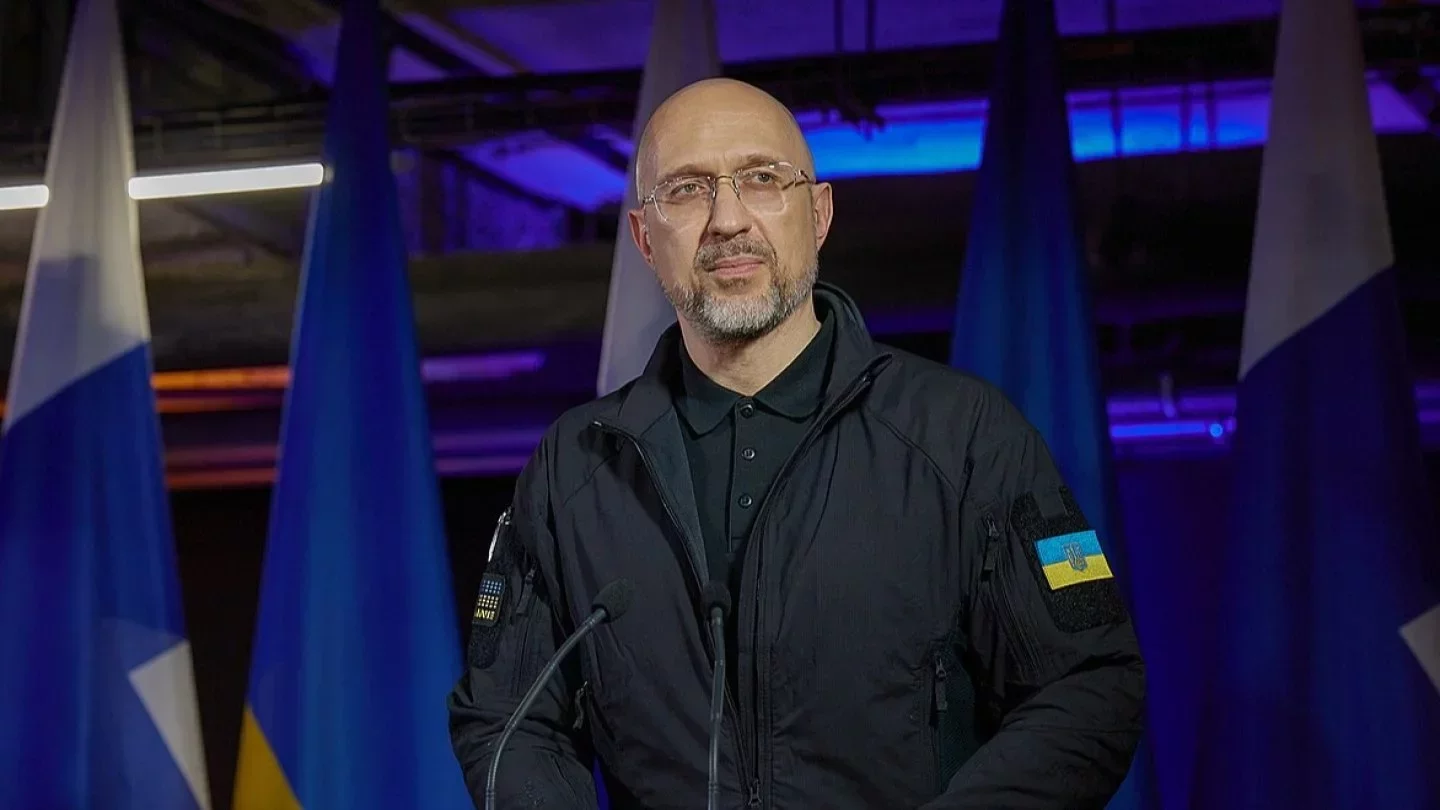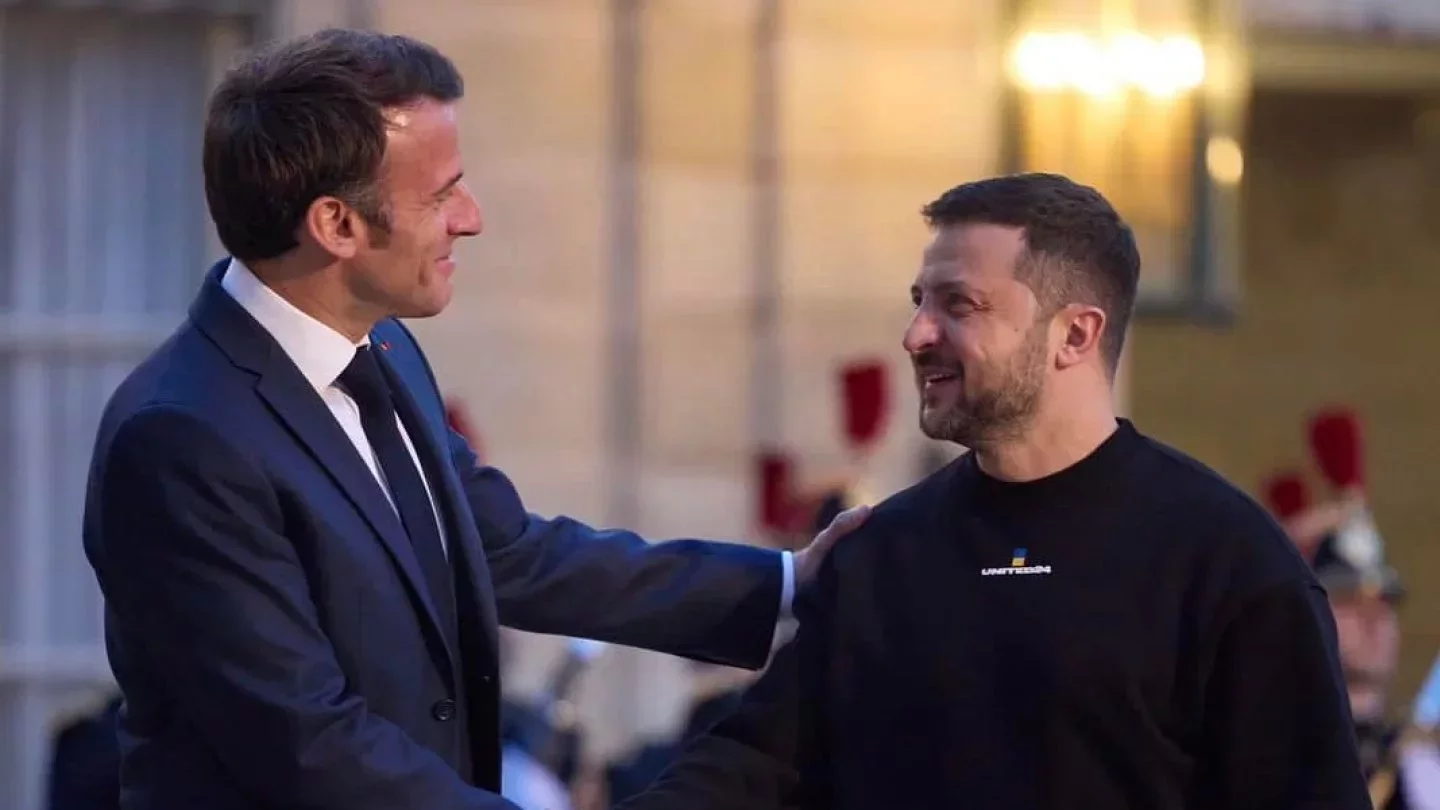Week In Review: Patriots, Deals, Frontlines, And More...
 Photo: Orda
Photo: Orda
Orda.kz has put together a brief synopsis of last week's news. This week's edition focuses on Ukraine.
Political Shuffles and Big Promises
On July 15, Ukrainian Prime Minister Denys Shmyhal submitted his resignation. Deputy Prime Minister Yuliia Svyrydenko has been appointed as his successor. The reshuffle is part of Zelenskyy’s planned restructuring of the executive branch.
The move marked the start of a broader reshuffle. On July 18, Shmyhal was appointed Minister of Defense, while Rustem Umerov, his predecessor, became Secretary of the National Security and Defense Council.
Both Shmyhal and Umerov faced criticism over corruption concerns and procurement disputes, yet retained top posts amid accusations of cronyism and political favoritism.
Observers noted that there were no actual changes, rather optics to have a war-weary society see something new while voting remains restricted due to the martial law in force.

Not long after, U.S. President Donald Trump announced plans to send additional Patriot air defense systems to Ukraine, citing a breakdown in ceasefire talks with Russian President Vladimir Putin. Trump expressed frustration with Putin’s tactics, stating, “He talks nice and then bombs everybody in the evening.”
Separately, Trump claimed he will slap Russia and its trading partners with "very severe" tariffs if a deal is not reached within 50 days.
While Trump did not specify the number of Patriot systems, he noted that the European Union would reimburse the U.S. for their cost. He also announced a forthcoming package of advanced weaponry for Ukraine, saying, “They are going to pay us 100% for that, and that’s the way we want it.”
The U.S. delayed deliveries of Patriot systems to Switzerland to prioritize Ukraine, according to a statement from the Swiss Defense Ministry. Meanwhile, a German Defense Ministry spokesperson denied knowledge of any Patriots en route to Ukraine, contradicting President Trump’s earlier claim, according to the Kyiv Independent.
Regardless, German Chancellor Friedrich Merz confirmed Germany will deliver long-range missiles to Ukraine “very shortly,” without disclosing specific weapon systems.
Eventually, German Defense Minister Boris Pistorius announced he reached an agreement with U.S. Defense Secretary Pete Hegseth during a recent trip to Washington to secure 5 Patriot air defense systems for Ukraine.
Big Deals, Apprehensive Partners
Ukrainian President Volodymyr Zelenskyy revealed negotiations with the U.S. on a “mega deal,” under which Ukraine would supply drones capable of striking targets up to 1,300 km away in exchange for American weapons.
Zelenskyy stated Ukraine is ready to share its extensive combat experience and drone technology with the U.S. Similar discussions are ongoing with Denmark, Norway, and Germany.
Against that backdrop, the U.K. and Germany signed a historic mutual defense pact in response to ongoing Russian aggression. U.K. Prime Minister Keir Starmer described it as a reflection of both nations’ deepening alliance.
At the same time, France and Italy purportedly opted out of a U.S.-NATO arms deal for Ukraine. French officials cited President Emmanuel Macron’s emphasis on strengthening domestic European defense industries as the reason.

Such a development runs in stark contrast with Paris's previous efforts to drum up further military and logistical support for Ukraine.
The European Union officially adopted its 18th package of sanctions against Russia. The measures include lowering the price cap on Russian crude oil exports to G7 countries to approximately $47.60 per barrel and introducing new restrictions on deals related to the Nord Stream 1 and 2 gas pipelines.
EU foreign policy chief Kaja Kallas called the sanctions among the toughest to date.
We are standing firm.
— Kaja Kallas (@kajakallas) July 18, 2025
The EU just approved one of its strongest sanctions package against Russia to date.
We’re cutting the Kremlin’s war budget further, going after 105 more shadow fleet ships, their enablers, and limiting Russian banks’ access to funding. (1/3)
Slovakia, which had previously withheld support, backed the sanctions package after Prime Minister Robert Fico received guarantees from European Commission President Ursula von der Leyen regarding gas price concerns.
Currently, the EU spends more on Russian energy than it allocates finances for supporting Ukraine.
A Familiar Picture
Russia’s summer offensive in Ukraine has yielded incremental gains, but at considerable cost. While key logistic points like Pokrovsk and Kostiantynivka remain out of reach, Russian troops will push to encircle them. To what extent remains largely hinged on Ukraine's ability to regroup and repel. Continuing military support, particularly from the U.S., is also crucial.
In early July, reports surfaced that the U.S. had halted certain shipments, while Trump stated he was unaware of the decision. Although the shipments were relatively small, their sudden suspension alarmed both Kyiv and its closest partners.
The EU's sanction package, the strongest to date, is bold on paper, but its practical impact is in question.
Indeed, in February 2025, Attorney General Pam Bondi disbanded the Kleptocracy Asset Recovery Initiative and Task Force KleptoCapture, redirecting staff and resources away from foreign-focused anti-corruption efforts toward drug cartel and transnational crime investigations.
Trump has given Moscow a 50-day window to reach a peace deal. The Kremlin, in parallel, has reportedly resumed discussions with the Turkish leadership about restarting negotiations.
Ukraine has signalled readiness for talks, while Umerov was tasked with bolstering attempts to hold them.
Zelenskyy's “mega deal” pitch to Trump appears tailored to appeal to him personally, highlighting the transactional nature of U.S. engagement. Trump had displayed similar behaviour when touting the mineral deal as a major win, despite widespread skepticism about its actual benefits.
Despite a shift in tone, Trump’s inconsistent approach seems to prioritize optics over substance.
Had such rhetoric and support been consistent from the outset — without doubt over U.S. involvement in NATO — Moscow may have been more inclined toward diplomacy, perhaps explaining Ukraine's attempts to appeal to Trump's Ukraine Envoy, Keith Kellogg.
Thank you, General @generalkellogg, for your courage🤝
— Andriy Yermak (@AndriyYermak) July 17, 2025
It’s an honor for us! pic.twitter.com/FjJSZdZoRS
Against that backdrop, France and Italy's decision to prioritize national defense industries underscores their inward focus, while the U.K. and Germany’s mutual defense pact reflects a separate effort to strengthen collective deterrence.
Other NATO members have demonstrated interest in securing further arms for Ukraine, but the logistics and provisions are still being worked out; a familiar pattern that emerged in the first years of the war.
At the same time, Russia may be facing more economic pressure at home; major banks reportedly flagged that bad credit is much more prominent than statistics show, which could force them to seek government bailouts.
On the front, depleting armor remains a significant issue for Russian forces, but reports indicate that combat is now mostly drone and artillery-oriented.
Ultimately, Ukraine's armed forces have proven both resilient and capable of long-reaching strikes within Russian territory, targeting key facilities. EU defense loans could offer urgent financial firepower for Ukraine, though they remain hinged on scaling up production, political cooperation, and careful debt management.
Meanwhile, Moscow's narratives have remained largely unchanged, further emboldened by Trump's lackluster attempts to end the war. U.S. military aid remains the most crucial and decisive element that Washington can provide.
Russia's National Bank Head has downplayed concerns regarding a banking crisis as well, meaning any economic woes brought forward are secondary to the Kremlin's goals in Ukraine.
Little is likely to change in the coming weeks. With entrenched positions and conflicting interests, all parties appear locked in a repetitive cycle.
Latest news
- Tokayev Meets U.S. Ambassador Stufft, Discusses Board of Peace Cooperation
- Mangystau Launches AI-Assisted School Monitoring to Prevent Teen Suicidal Behavior
- Kazakhstan to Supply UK With Critical Minerals
- AI Faculties for Educators to Open in Kazakhstan: What Other Changes Are Coming to the Education Sector
- There Are Medals — But Not Enough Ice: What’s Happening to Figure Skating in Kazakhstan
- Is Kazakhstan’s Nuclear Power Plant Project at Risk After New UK Sanctions? Rosatom Responds
- Prosecutor General’s Office Suspends Extradition of Navalny Ex-Staffer Detained in Almaty
- Former EBRD Executive Jürgen Rigterink Elected as New Independent Director on Bank RBK’s Board of Directors
- Kazakhstan Near Bottom of Retirement Comfort Ranking
- Kazakhstan to Open New International Flights Across Asia, the Middle East and Europe
- Foreign Experts Paid 47 Times More Than Local Scientists in Kazakhstan
- Almaty Utility Services Clear Streets for Fourth Time After Continuous Snowfall
- The Deputy Calls for Checks on Kazakh Officials Named in Epstein Files
- Su-30SM Fighter Jet Crashes Near Karaganda
- School Smartphone Restrictions May Expand Beyond the Classroom
- US warns Ukraine against strikes affecting CPC oil exports
- Kazakhstan and Austria Agree on Readmission of Illegal Migrants
- Digital Rating for Military Commanders Proposed in Kazakhstan
- Smartphones and Nap Time: Ministry Proposes Easing Rules for Convicts
- Company Managing Russia’s CPC Stake Hit by UK Sanctions

